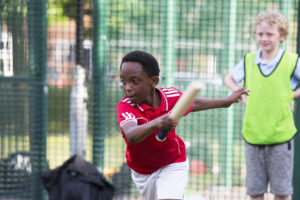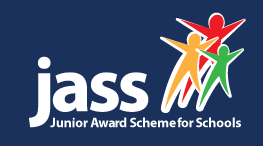The National Curriculum states that schools must promote mental and physical development of pupils and prepare them for the opportunities, responsibilities and experiences of later life.
JASS is an ideal way of meeting these criteria because it develops interpersonal skills, communication, problem solving and team work, and builds self-confidence and a sense of self-wellbeing. JASS can produce successful learners, confident individuals, effective contributors and responsible citizens.

Developing an interest or learning a new skill
Taking part in sport and physical activity
Contributing to the local community and environment
Outdoor activities & learning, problem-solving and teamwork
JASS is structured into four sections, designed to stretch different aspects of developing confident individuals.
The JASS award is progressive, with increasing commitment, learning and challenge. Each JASS award takes the following timescales to complete but is flexible and adaptable should changes to the timescale need to be made:

We are here to support you and your school throughout the programme.
We offer:

From £8.50 (plus VAT) per pupil
Of course! Start building a list of all the existing activities that are planned for the year, e.g. school trips, eco work, sports events etc., is a good starting point. Once this is completed it is recommended that these are allocated to the most appropriate JASS sections. This can be done as a team to work out who has an interest in the different activities and is willing to lead on this activity. The question can then be asked, ‘should we bring in Edsential?’
It is always hard to inspire people of any age to take up regular sporting activities! For pupils who have fallen behind their peers in terms of their level of fitness, this can be doubly daunting.
Edsential can tailor some excellent programmes full of engaging exercises that can be delivered as part of a fun lunchtime club should one not be already available. Walking to school is something which could be promoted in school too which could be done as part of the Get Active Stay Active and ties in with developing healthier long-term lifestyle choices.
Playing of the games in themselves cannot be counted for JASS, but this hobby can be extended to fit within the My Interests section. Some ideas might be:
As JASS is a very flexible programme there are many ways to present evidence of having done activities for JASS sections. Edsential have Activity Log templates available to make recording easy.
eJASS: All evidence for eJASS must be submitted onto the participants online profile. This can be as photos, videos, documents etc. If a participant has written evidence (such as the Activity Log), then this can be photographed or scanned and added onto their eJASS profile
Trust plays a big part in completing the JASS programme. We would encourage mentors to ensure that the personal objective pages, as well as the activity planner for each activity is completed for each activity and at least one piece of evidence – certificate, photograph, report – is produced for each activity.
Although JASS is targeted at the age range 10-14 to cover Bronze, Silver and Gold, there are circumstances where a school may want to start earlier or to extend beyond this. The flexibility of the JASS award allows for variation. This is often seen in Special Educational Needs and Disability settings.
Toggle content goes here, click edit button to change this text.
This can depend on the chosen activity as well as the JASS section. All sections can be completed without the school curriculum and this will assist in increasing the participants self-reliance and self-confidence. However, there are benefits to completing the JASS award as part of the school curriculum also, for example through building teamwork and communication skills.
This is not a problem unique to JASS and many schools will already have mentoring or other support arrangements in place. For JASS activities it is also possible to consider involving interested parents or other mentors, as well as utilising peer support from older pupils/participants – for example pupils looking for volunteering opportunities as part of their own JASS programme.
JASS is a flexible award and schools or youth groups can decide how best it fits in with their other activities. A typical model is for one theme to be completed each term with the Adventure met by a class activity in the 3rd term but it is also possible to work on two or more sections concurrently. The Gold JASS level can be completed during one academic year however, due to the greater time commitment, this can also be distributed over two years.
JASS has been designed as a progressive award but there is no dependency on completion of the preceding stage and it can be started at Silver or Gold level if that is the appropriate level for the participant.
If you didn’t find the answer for your question here, then please contact Claire Annakin – PE Specialist and JASS Lead